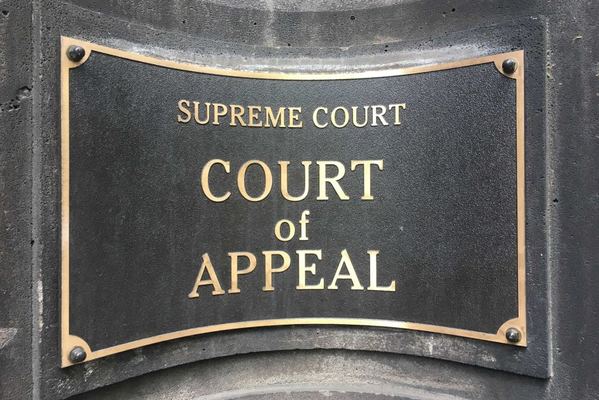A North Shore father and son who bashed a man with baseball bats, injuring him for life, have failed to overturn their conviction.
Victoria’s Court of Appeal on Tuesday rejected an appeal bid after lawyers for the convicted questioned the impartiality of jurors during a trial last year.
Last May a jury found father Michael James McKinnin and son Harley Michael James McKinnin guilty of causing serious injury recklessly after the attack in 2017.
The McKinnins were residing at Michael’s North Shore scrap metal business when on 24 March a group of youths trespassed on the property before fleeing.
The McKinnins jumped into their Holden Astra, armed with baseball bats, to chase the group.
They pulled up out the front of a poultry factory and the factory owner came out to investigate the commotion.
The McKinnons struck the man to the left side the head and hit him to the body and legs with bats as he lay on the ground.
The “savage” beating only ended when a factory employee rammed the Astra with her car to distract the pair, County Court judge Geoffrey Chettle found.
The beating shattered the man’s cheekbone, left him with leg, ankle and rib fractures and a permanent limp, the court heard in a victim statement.
“It is clear that your attack on (the victim) was vicious, unprovoked and planned,” Judge Chettle said.
A week later Judge Chettle sentenced Harley McKinnin to eight years’ jail with a non-parole period of five and a half years.
He sentenced Michael McKinnin to seven and a half years’ prison with a minimum of five years.
But the McKinnin’s lawyers this week argued jurors during the 2018 trial misunderstood their role and “impermissibly” questioned four witnesses.
This allowed jurors to “become investigators” and “compromised” their impartiality, the lawyers argued.
Prior to the trial Judge Chettle instructed jurors to write any questions down, as is standard protocol.
Court of Appeal justices Richard Niall, Terry Forrest and Mark Weinberg agreed Judge Chettle should have reminded the jury of the protocol earlier than he did.
But they found the jurors’ questions did not result in a misunderstanding of their role or a miscarriage of justice, and refused leave to appeal.
The justices also rejected three other grounds for appeal relating to a specific witness and the judge’s treatment of self-defence.







